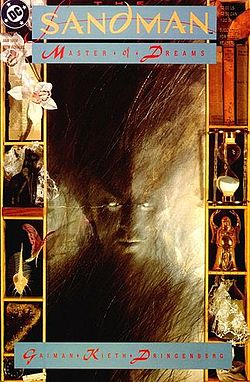At BookBrowse, we don't just review books, we go 'beyond the book' to explore interesting aspects relating to each book we feature. Here is a recent "Beyond the Book" feature for The World of The End by Ofir Touché Gafla
 Mythic expression is humanity's first language. These myths, or to use a more contemporary synonym, metanarratives, are the stories that give purpose and meaning to a people, a way of understanding the seemingly random occurrences in the lives of individuals and communities. Whether these are expressed in clay statues, paintings on cave walls, or mutually intelligible symbols such as words, each is a vision of the world and of the place of humanity within it.
Mythic expression is humanity's first language. These myths, or to use a more contemporary synonym, metanarratives, are the stories that give purpose and meaning to a people, a way of understanding the seemingly random occurrences in the lives of individuals and communities. Whether these are expressed in clay statues, paintings on cave walls, or mutually intelligible symbols such as words, each is a vision of the world and of the place of humanity within it.
Here's a selection of particularly good books publishing in September 2013, selected from over 100 new and notable books that are previewed on BookBrowse.
If you're wondering what films based on books will release in Fall 2013 (August - December), BookBrowse has the answer! Below you will find films opening in the USA, UK and elsewhere. There are films for youth, films for adults, films based on classics and films based on recent bestsellers.
As the weather turns cooler, the days grow shorter, and fall gives way to winter, keep an eye out for these new films! And tell us which you'd like to see by taking our quick poll (click to this page then scroll to the bottom of the page to see the poll).
Films Premiering in the USA:
Q: "We recently gained a new book club member who is causing problems. She's only been to three meetings so far but she talks about herself non-stop. Every time someone makes a point about the book, she somehow relates it back to her life and tells a 10+ minute story. I've tried everything I can think - redirecting her back to the book, interrupting her, ignoring her but it's not working. She also puts people down, probably without meaning to, but still she does it. I don't think she has much of a social life outside of the club so I don't want to just tell her she can't come but she's ruining book club for the rest of the group at the moment so I need to do something. What is your advice?"
As you all know, we get a lot of book-related questions at BookBrowse. While we certainly have our own answers to these fascinating and excellent dilemmas, we love turning to our Facebook followers who always have the perfect answer - or answers! Here is their advice for addressing this sticky, tricky problem:
 Before he began to write novels that would earn him public recognition, Gaiman wrote comic books and graphic novels. The Sandman graphic novels (1989-1996), initially published by D C Comics and later by Vertigo, were particularly popular with a total of 75 issues. The Sandman is about an all-powerful being called Dream, also named Morpheus. He is one of seven god-like siblings who have always existed, and who exert their influence on our world. The series follows Morpheus, who has been the prisoner of a group of wizards for 70 years. Once he escapes, he must find several powerful objects that will allow him to exact revenge upon his enemies. Along the way he must also face up to his mistakes, and find a way to reclaim his kingdom of dreams. Norman Mailer once described The Sandman as "a comic strip for intellectuals." Among its many awards it was included in Entertainment Weekly's list of 100 best reads from 1983 to 2008, and issue 19 won a World Fantasy Award for Best Short Fiction in 1999 (the only graphic novel to have ever won the award). It is also one of a very few graphic novels to have been on The New York Times bestseller list.
Before he began to write novels that would earn him public recognition, Gaiman wrote comic books and graphic novels. The Sandman graphic novels (1989-1996), initially published by D C Comics and later by Vertigo, were particularly popular with a total of 75 issues. The Sandman is about an all-powerful being called Dream, also named Morpheus. He is one of seven god-like siblings who have always existed, and who exert their influence on our world. The series follows Morpheus, who has been the prisoner of a group of wizards for 70 years. Once he escapes, he must find several powerful objects that will allow him to exact revenge upon his enemies. Along the way he must also face up to his mistakes, and find a way to reclaim his kingdom of dreams. Norman Mailer once described The Sandman as "a comic strip for intellectuals." Among its many awards it was included in Entertainment Weekly's list of 100 best reads from 1983 to 2008, and issue 19 won a World Fantasy Award for Best Short Fiction in 1999 (the only graphic novel to have ever won the award). It is also one of a very few graphic novels to have been on The New York Times bestseller list.